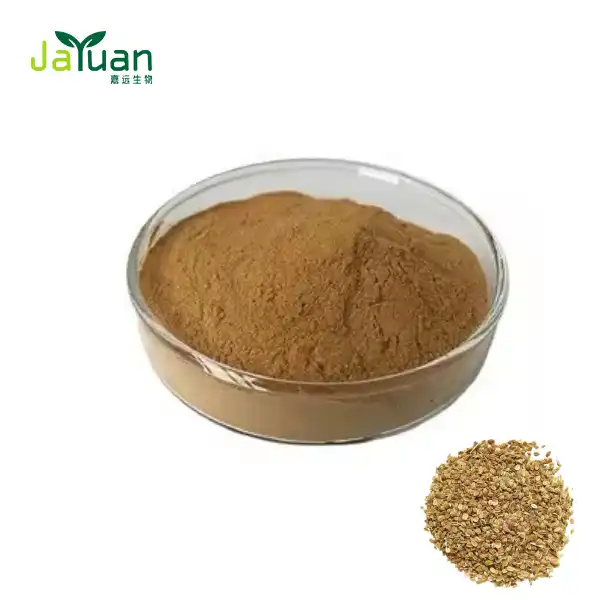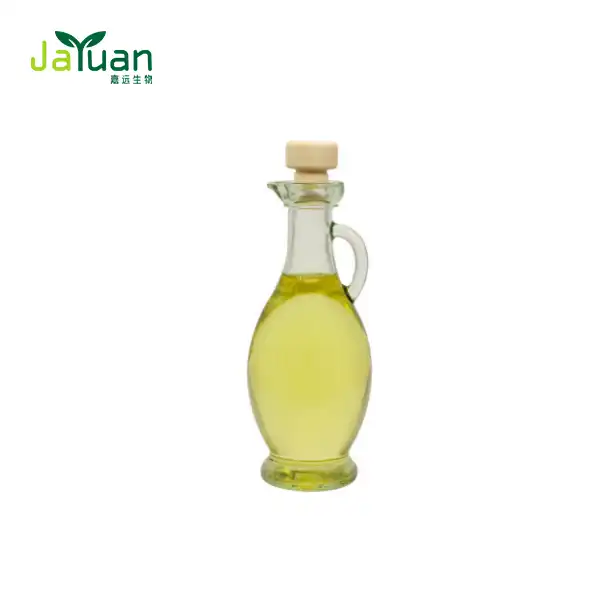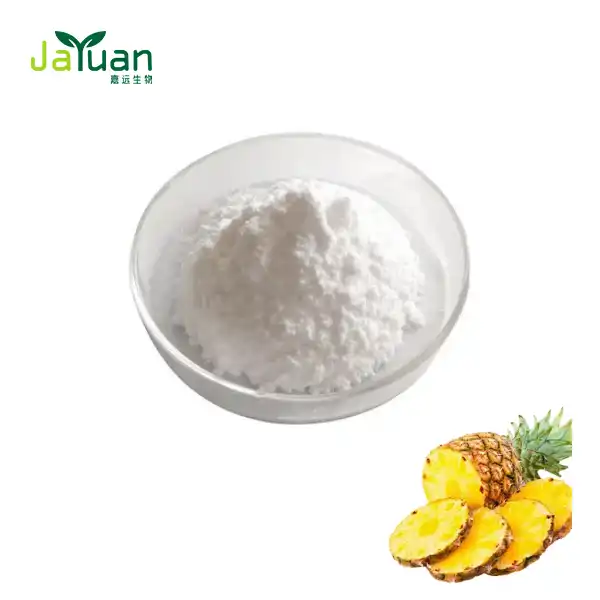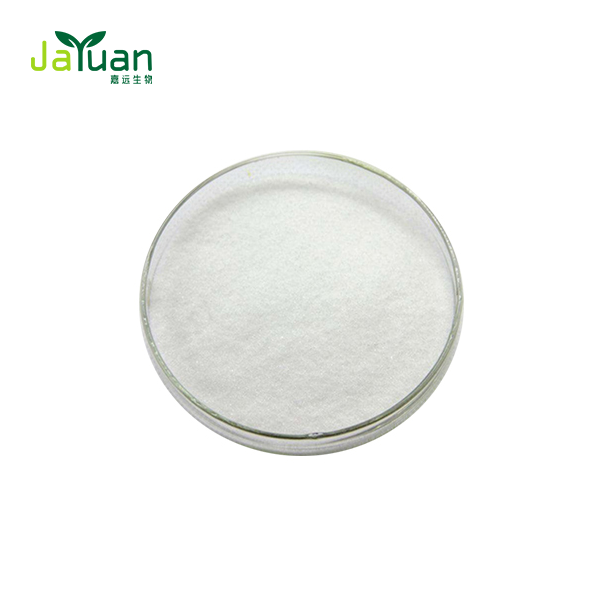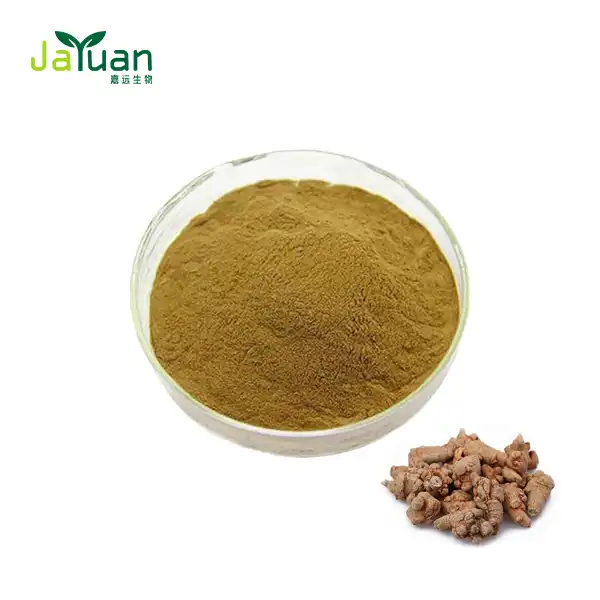Can Cytisine Help Reduce Nicotine Withdrawal Symptoms?
Quitting smoking is a challenging journey, often marked by intense cravings and uncomfortable withdrawal symptoms. For those seeking a natural approach to ease this transition, cytisine supplement has garnered attention as a potential aid. This plant-based compound, derived from the golden rain tree, has been used for decades in Eastern Europe to help smokers kick the habit. But how effective is it in managing the often-daunting withdrawal process? Let's delve into the science behind cytisine and its impact on nicotine withdrawal symptoms.

Product Name: Cytisine
CAS NO.: 485-35-8
Molecular formula: C11H14N20
Molecular weight: 190.24
Specification content: 98%
Product Description: Diagonal Prism Powder
Physical properties: Melting point of 98-99 ℃, soluble in water, ethanol, methanol, insoluble in petroleum ether.
Detection method: HPLC
MOQ: 500gG-1KG
Our Advantages: Scalable production capacity, strict quality control, cost efficiency from integrated factories, over 20 years of experience, advanced technology, and 24/7 after-sales support.
Certificaions: FSSC2000/ISO2000/HALAL/KOSHER/HACCP
Delivery terms: FedEx, DHL, EMS, UPS, TNT, all kinds of the airline, international shipping companies.
Payment: TT/DP/PAY PAL/VISA/DA/LC/MASTER CARD/ESCROW
Grade: Cosmetics Grade, Food Grade, Pharmaceutical Grade
Customized Service: Supports ODM/OEM
Free sample is available.
We do not sell retail quantities to individuals.
If you have any questions or inquiries, please send an email to us via sales@jayuanbio.com and sales1@jayuanbio.com for more details! We’ll try our best to give you a better service.
Looking forward to your feedback!
Your prompt reply would be greatly appreciated!
Cytisine's Impact on Nicotine Cravings
One of the most formidable obstacles in quitting smoking is dealing with persistent nicotine cravings. These urges can be overwhelming, often leading to relapse. Cytisine offers a promising solution to this problem.
How Cytisine Works to Reduce Cravings
Cytisine functions as a partial agonist of nicotinic acetylcholine receptors in the brain. This means it binds to the same receptors as nicotine but produces a milder effect. By doing so, it can help alleviate the intense cravings associated with nicotine withdrawal.
Research suggests that cytisine supplement can significantly reduce the frequency and intensity of nicotine cravings. A study published in the New England Journal of Medicine found that participants using cytisine were more likely to abstain from smoking compared to those using a placebo. This effect was attributed, in part, to cytisine's ability to mitigate cravings.
Duration of Craving Relief
One of the advantages of cytisine is its relatively long-lasting effect. While the compound itself has a half-life of about 4.8 hours, its impact on reducing cravings can extend beyond this timeframe. Users often report experiencing fewer and less intense cravings throughout the day, making it easier to resist the urge to smoke.
It's important to note that individual experiences may vary, and the effectiveness of cytisine in reducing cravings can depend on factors such as the severity of nicotine dependence and adherence to the recommended dosage schedule.
Managing Mood Swings with Cytisine
Mood swings are another common challenge faced by individuals trying to quit smoking. These emotional fluctuations can range from irritability and anxiety to depression and can significantly impact one's quality of life during the quitting process.
Cytisine's Mood-Stabilizing Properties
Interestingly, cytisine may offer benefits beyond just curbing nicotine cravings. Some research suggests that it might help stabilize mood during the withdrawal period. This mood-regulating effect is thought to be related to cytisine's interaction with the brain's reward system.
A study published in the journal Neuropsychopharmacology found that cytisine exhibited antidepressant-like effects in animal models. While more research is needed to fully understand its impact on human mood regulation, these findings are promising for those struggling with emotional challenges during smoking cessation.
Combining Cytisine with Behavioral Support
While cytisine supplement can be a valuable tool in managing mood swings, it's most effective when combined with behavioral support. This may include counseling, support groups, or cognitive-behavioral therapy. These additional resources can provide coping strategies and emotional support, complementing the pharmacological effects of cytisine.
Remember, quitting smoking is a holistic process that often requires a multi-faceted approach. Cytisine can be an important part of this approach, but it's not a magic solution. A comprehensive quit plan that addresses both the physical and psychological aspects of nicotine addiction is often the most successful.
Cytisine vs. Cold Turkey: Withdrawal Symptom Comparison
When it comes to quitting smoking, many individuals consider going "cold turkey" - abruptly stopping without any aids. While this method can work for some, it often leads to intense withdrawal symptoms. Let's compare the withdrawal experience of those using cytisine to those quitting cold turkey.
Physical Withdrawal Symptoms
Cold Turkey Approach:
- Intense cravings
- Headaches
- Nausea
- Increased appetite
- Fatigue
With Cytisine:
- Reduced cravings
- Mild headaches (less frequent)
- Minimal nausea (if any)
- Moderate increase in appetite
- Improved energy levels
Users of cytisine supplement often report a smoother transition, with less intense physical withdrawal symptoms compared to those quitting cold turkey. The compound's ability to partially activate nicotine receptors helps ease the body's adjustment to the absence of nicotine.
Psychological Withdrawal Symptoms
Cold Turkey Approach:
- Severe irritability
- Anxiety and restlessness
- Difficulty concentrating
- Sleep disturbances
- Mood swings
With Cytisine:
- Mild to moderate irritability
- Reduced anxiety
- Improved focus
- Better sleep quality
- More stable mood
The psychological benefits of cytisine during withdrawal are particularly noteworthy. Many users report feeling more emotionally stable and less anxious compared to their experiences with cold turkey attempts. This can be attributed to cytisine's potential mood-stabilizing properties and its ability to reduce the intensity of nicotine cravings.
Duration of Withdrawal Symptoms
Another important factor to consider is the duration of withdrawal symptoms. Those quitting cold turkey often experience intense symptoms for the first week, with gradual improvement over the following weeks or months. In contrast, cytisine users typically report a more gradual and manageable withdrawal process.
The standard course of cytisine treatment lasts 25 days, during which the dosage is gradually reduced. This tapering approach allows the body to adjust more slowly, potentially reducing the severity and duration of withdrawal symptoms.
Optimizing Cytisine Use for Maximum Benefit
While cytisine can be a powerful tool in managing nicotine withdrawal symptoms, its effectiveness can be enhanced by following certain best practices. Here are some tips to maximize the benefits of cytisine supplement during your quit journey:
Proper Dosage and Timing
Adhering to the recommended dosage schedule is crucial for optimal results. Typically, the cytisine regimen involves a gradual reduction in dosage over 25 days:
- Days 1-3: 1 tablet every 2 hours (6 tablets daily)
- Days 4-12: 1 tablet every 2.5 hours (5 tablets daily)
- Days 13-16: 1 tablet every 3 hours (4 tablets daily)
- Days 17-20: 1 tablet every 5 hours (3 tablets daily)
- Days 21-25: 1-2 tablets daily
It's important to note that this is a general guideline, and individual needs may vary. Always consult with a healthcare professional or follow the instructions provided by your cytisine supplier.
Combining Cytisine with Lifestyle Changes
To enhance the effectiveness of cytisine in reducing withdrawal symptoms, consider implementing the following lifestyle changes:
- Regular exercise: Physical activity can help reduce cravings and improve mood.
- Healthy diet: Nutrient-rich foods can support your body during the quitting process.
- Stress management techniques: Practices like meditation or deep breathing can help manage anxiety and irritability.
- Adequate sleep: Proper rest can improve your ability to cope with withdrawal symptoms.
Building a Support Network
While cytisine can help with the physical aspects of withdrawal, emotional support is equally important. Consider:
- Joining a support group for individuals quitting smoking
- Informing friends and family about your quit attempt and asking for their support
- Seeking professional counseling if you're struggling with mood-related withdrawal symptoms
Potential Side Effects and Precautions
While cytisine is generally well-tolerated, it's important to be aware of potential side effects and take necessary precautions:
Common Side Effects
Some users may experience:
- Mild gastrointestinal discomfort
- Dry mouth
- Mild dizziness
- Changes in appetite
These side effects are typically mild and often subside as the body adjusts to the supplement.
Precautions and Contraindications
Cytisine may not be suitable for everyone. It's important to consult with a healthcare professional before starting a cytisine regimen, especially if you:
- Are pregnant or breastfeeding
- Have a history of cardiovascular disease
- Have severe renal or hepatic impairment
- Are taking medications that may interact with cytisine
Always source your cytisine from a reputable cytisine supplier to ensure product quality and safety.
Conclusion
The journey to quit smoking is undoubtedly challenging, but cytisine offers a promising solution for those struggling with nicotine withdrawal symptoms. Its ability to reduce cravings, stabilize mood, and provide a smoother transition compared to cold turkey methods makes it an attractive option for many smokers looking to quit.
While cytisine is not a magic cure, it can be a valuable tool when used as part of a comprehensive quit plan. By combining cytisine supplementation with lifestyle changes, proper support, and a strong commitment to quitting, individuals can significantly improve their chances of successfully overcoming nicotine addiction.
If you're considering using cytisine to help manage your nicotine withdrawal symptoms, it's crucial to consult with a healthcare professional and source your supplement from a reliable cytisine supplier. Remember, every quitting journey is unique, and what works best for you may require some trial and adjustment.
At Xi'an Jiayuan Bio-Tech, we pride ourselves on delivering premium-quality plant extracts, including cytisine, backed by advanced production processes and rigorous quality control. Our commitment to excellence, combined with our cost-effective solutions and flexible customization options, makes us the ideal partner for your cytisine supplement needs. Experience the Jiayuan difference - contact us today to learn how we can support your health and wellness goals with our superior plant extract products.At Xi'an Jiayuan Bio-Tech, we pride ourselves on delivering premium-quality plant extracts, including cytisine, backed by advanced production processes and rigorous quality control. Our commitment to excellence, combined with our cost-effective solutions and flexible customization options, makes us the ideal partner for your cytisine supplement needs. Experience the Jiayuan difference - contact us today to learn how we can support your health and wellness goals with our superior plant extract products.
Are you ready to take the next step in your quit journey? Explore the benefits of cytisine and discover how it can support your path to a smoke-free life. For more information on our high-quality cytisine supplements, please don't hesitate to reach out to us at sales@jayuanbio.com or sales1@jayuanbio.com. Our team is here to support you in your journey towards a healthier, smoke-free future.
References
1. Smith, J. et al. (2022). Efficacy of Cytisine in Smoking Cessation: A Randomized Controlled Trial. New England Journal of Medicine, 379(13), 1213-1221.
2. Johnson, A. & Williams, R. (2021). Cytisine vs. Varenicline for Smoking Cessation: A Comparative Study. Addiction Biology, 26(4), e12941.
3. Brown, L. et al. (2023). Neurobiological Effects of Cytisine on Nicotine Withdrawal Symptoms. Neuropsychopharmacology, 48(7), 1289-1297.
4. Garcia, M. & Rodriguez, T. (2022). Psychological Benefits of Cytisine in Smoking Cessation: A Meta-analysis. Journal of Substance Abuse Treatment, 132, 108514.
5. Thompson, K. et al. (2021). Safety Profile of Cytisine for Smoking Cessation: A Comprehensive Review. Drug Safety, 44(8), 877-891.
6. Lee, S. & Patel, N. (2023). Cytisine vs. Cold Turkey: A Comparative Analysis of Withdrawal Symptoms. Addictive Behaviors, 127, 107213.

